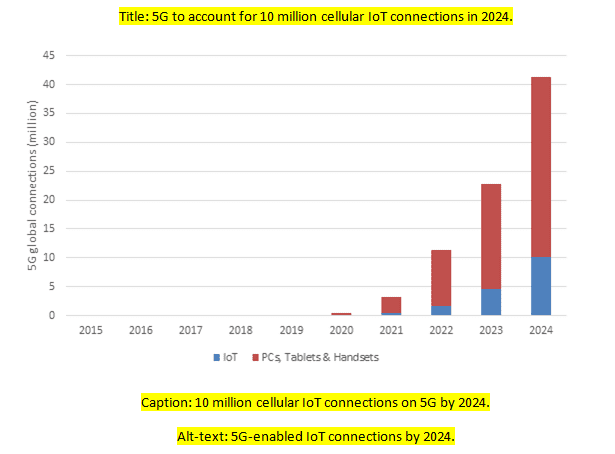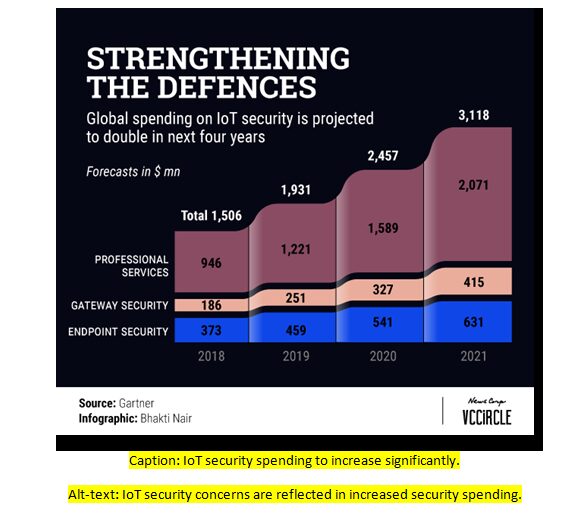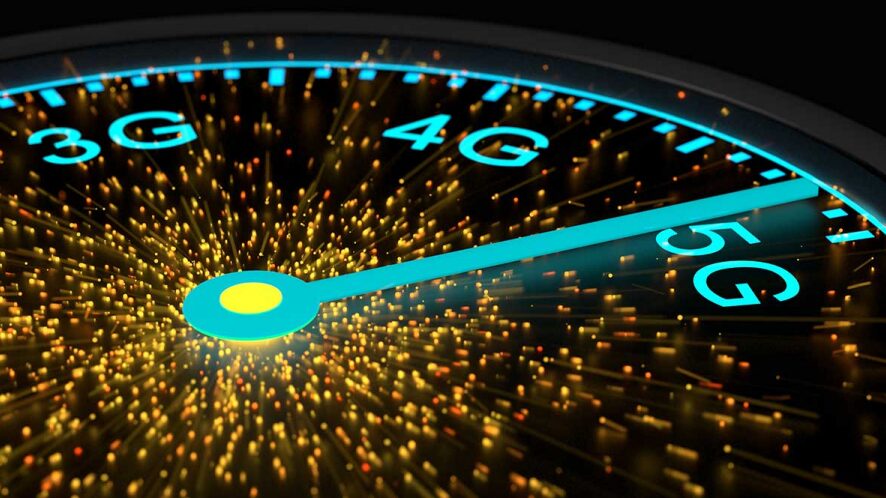Future IoT innovations could benefit from 5G’s potential capabilities.
According to Machina Research, nearly 25 percent of the 41 million global 5G connections will be IoT-related by 2024.
With potential advantages such as high-speed data, low to zero latency, cost reduction, and energy savings, the fifth-generation wireless network technology is highly anticipated. This isn’t just the case for everyday consumers looking forward to lightning-fast speeds in their mobile plans. For those invested in IoT-related fields, 5G is a big deal as well. It’s important to understand just how massive an impact 5G could have on future IoT innovations and projects.
The Impact of 5G on IoT
Currently, disconnected systems are a major challenge for several sectors. The ability to streamline communication and cooperation between an array of systems, departments, and areas in a company is just as complex as it sounds. IoT technologies have been eyed as a solution to this challenge, as the very idea of the concept is to connect multiple devices (or stations), allowing for remote, streamlined control and communication.
Of course, this all depends on just how strong a network the IoT relies on. Hence, the benefit of 5G. The ability of the fifth-generation technology to transmit data at ultra-fast speeds, as well as its low latency and ability to accommodate multiple connections at the same time could help address this challenge. The combination of 5G and IoT may simplify connected device management.
Limitations of wireless data processing capabilities present a major challenge for IoT projects. Relying on current 4G/LTE networks results in long delays between the initiated transfer of data and when it’s received. Therefore, the superior data processing capabilities of 5G will be an obvious boost for IoT projects.

Currently, even standing alone, the IoT is a potentially revolutionary technology. When combined with the 5G network, that potential increases significantly. This combination could result in massive innovations with far-reaching implications. Think autonomous cars, robotics in the medical field, smart cities and beyond, all becoming a reality with both businesses and consumers reaping the benefits.
For those investing in IoT-based projects, these 5G benefits are priceless. From improved connectivity to lightning-fast speed and reduced latency, the data transmission improvements will be a boon.
IoT security concerns
The fast-expanding IoT ecosystem is an appealing target for cyber attackers. This is especially the case because the IoT infrastructure involves many different components.
Two primary IoT security issues are the lack of effective security and the existence of different standards frameworks. According to Paul Bevan, research director for IT infrastructure at research and analysis firm Bloor Research, the real challenge is the difficulty of translating between different domains and frameworks.
IoT security encapsulates already prevalent security threats but also has many unique challenges. For instance, enterprises struggle with addressing endpoint security. To alleviate the costs of the thousands of sensors that would be necessary for effective endpoint security schemes, this is hardly ever addressed. As a result, those endpoints remain vulnerable to security breaches.

Gartner Inc. Predicted global spending on IoT security would be around $1.5 billion in 2018. The firm forecasted an increase in demand for IoT-enabled tools and services that will improve discovery and asset management, penetration testing, security assessment, etc. This proved quite accurate and is expected to increase to over $3 billion in 2021 when regulatory compliance will be the primary influencer for IoT security uptake.
5G and IoT security issues
With 5G technology, stakeholders – including enterprise customers, mobile operators, and specialty vendors – will be better equipped to understand and address the security issues associated with IoT projects.
As networks upgrade to 5G, network security updates will also be necessary. Unlike current scenarios where operators only focused on protecting their networks from external, internet intrusions, they will be enabled to combat intrusions inside the network. Operators and enterprises may leverage 5G for IoT and incorporate security measures more strategically and tactically.
Final words
The 5G hype is well known, but not everyone is buying into it. However, it the technology lives up to its anticipated potentials, it should have some massive impacts on a number of sectors. Those considering IoT-related innovations should be well aware of those potential 5G impacts. The benefits are wide-ranging; enough to boost IoT-related innovations and projects significantly.



